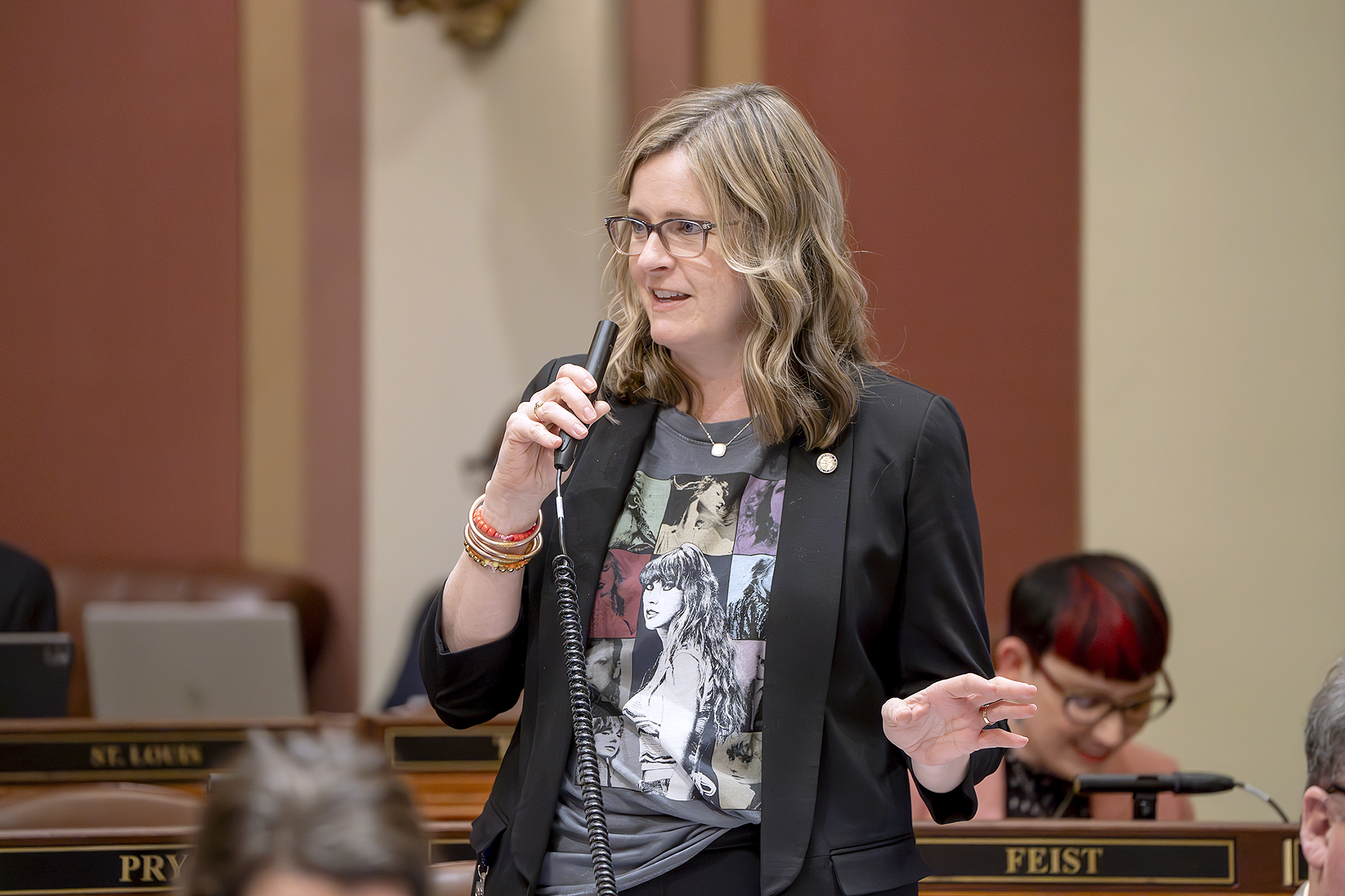House passes bill that calls for added protections for online ticket buyers

Rep. Kelly Moller (DFL-Shoreview) certainly doesn’t like Ticketmaster.
She got burned by the ticket conglomerate when a promised code to ensure she could buy Taylor Swift tickets never materialized, preventing Moller and her niece from scoring tickets to see their idol perform at the Eras tour stop in Minneapolis last year.
Moller didn’t just “Shake it Off,” though, she set out to give Ticketmaster the “Karma” it deserved.
She sponsors the aptly numbered HF1989, which would regulate how online ticket sellers, bulk ticket buyers and resellers operate, aiming to give additional consumer protections to individual ticket buyers in the state.
“It prohibits the use of bots to purchase tickets and other unfair practices that puts tickets in the hands of scalpers over consumers,” she said on the House Floor Thursday when presenting her bill, dubbed “The Ticketing Fairness Act.”
There was little “Red” on the voting board; the bill, as amended, was passed 112-18 and sent to the Senate.
“One of the great things about living in Minnesota is that we have wonderful entertainment opportunities, from concerts to theater performances to all kinds of different sporting events,” she said. “The Ticketing Fairness Act seeks to provide a fair and transparent process for Minnesotans so that they can enjoy these events.”
[MORE: Read Session Daily story on bill in committee]
In addition to banning bots, Moller said the bill has several other ticket-buying protections, including:
- requiring “all-in pricing” to ensure ticket buyers know the total cost of a ticket up front;
- ensuring ticket purchasers receive proof of purchase and refund policy details within 24 hours;
- banning deceptive advertising;
- banning speculative pricing; and
- requiring an online ticket marketplace to disclose on its website that it is a ticket reseller.
If a reseller uses a bot or other technology to buy more tickets than allowed, the Department of Commerce would have the power to demand the reseller disclose how it was able to accomplish the deception.
The department could then share that information with the attorney general’s office for possible prosecution.
Rep. Tim O'Driscoll (R-Sartell) wants assurances that individuals who buy many tickets for their friends, or organizations making group purchases, would not face the same kind of restrictions the bill would put on huge resellers like Ticketmaster.
Moller said the bill would account for those situations by exempting any person or organization whose annual aggregate ticket transactions do not exceed $5,000.
Related Articles
Search Session Daily
Advanced Search OptionsPriority Dailies
Speaker Emerita Melissa Hortman, husband killed in attack
By HPIS Staff House Speaker Emerita Melissa Hortman (DFL-Brooklyn Park) and her husband, Mark, were fatally shot in their home early Saturday morning.
Gov. Tim Walz announced the news dur...
House Speaker Emerita Melissa Hortman (DFL-Brooklyn Park) and her husband, Mark, were fatally shot in their home early Saturday morning.
Gov. Tim Walz announced the news dur...
Lawmakers deliver budget bills to governor's desk in one-day special session
By Mike Cook About that talk of needing all 21 hours left in a legislative day to complete a special session?
House members were more than up to the challenge Monday. Beginning at 10 a.m...
About that talk of needing all 21 hours left in a legislative day to complete a special session?
House members were more than up to the challenge Monday. Beginning at 10 a.m...